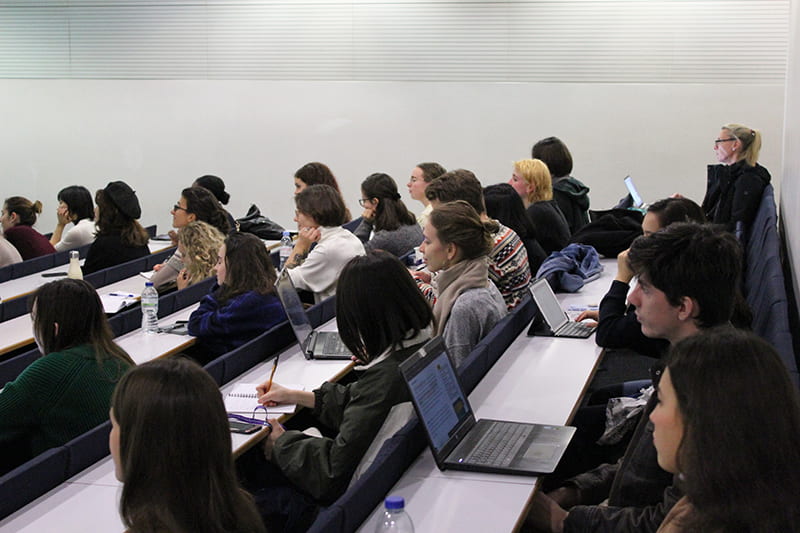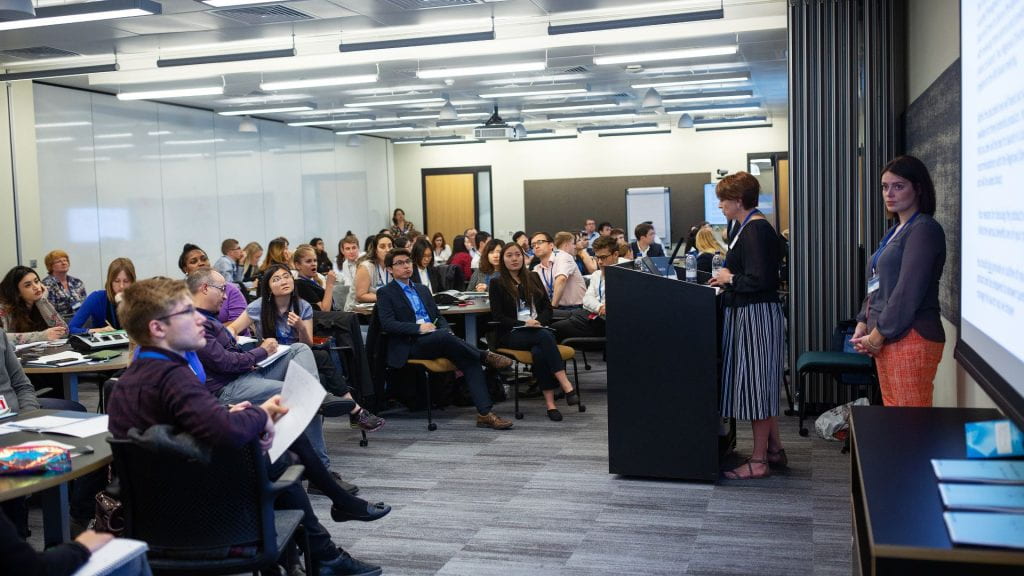What is considered ‘publishing’?
publishing: the occupation or activity of preparing and issuing books, journals, and other material for sale (n.)
To put it simply, publishing is about making concepts public; connecting people who create content with people who need that content.
Roles in publishing exist across the media industry, involving not only the production of books and journals but also magazines, newspapers, business media, musical scores and graphics – to name a few! As our world becomes more technologically advanced, new multi-media formats also contribute to shifting industry opportunities, challenges and career paths.
Publishing is a competitive industry, with notoriously few advertised entry-level positions. Whilst some organisations recognise this and are developing routes into the industry for a wider pool of candidates, these remain highly sought-after. The most common routes into publishing include postgraduate qualifications, work experience placements, graduate training schemes, networking and personal recommendations. Candidates with a strong work ethic and transferable skills developed via experience in other sectors, are also well regarded.
What careers can I have in publishing?
A career in publishing can vary depending on both the sector and department you work in.
Some of the more common sectors of publishing include:
- Academic
- Consumer
- Educational
- Professional
- Scientific and technical
Within these sectors are a wide range of departments. For example within the book publishing industry, typical departments include:
- Contracts: working with editors and literary agents or the author to negotiate the terms of the contract.
- Design: reviewing the book and liaising with editorial and marketing to create a visual identity and oversee its implementation – from the jacket to the cover and interior.
- Digital: creating, implementing and maintaining new and existing web initiatives, including the organisation’s own web offering, online features and marketing campaigns.
- Editorial: acquiring and editing a manuscript, and seeing it through to publication.
- Managing Editorial: overseeing the whole editorial process, including working with both editorial and production to keep an eye on schedules for both the finished product and wraparound materials.
- Marketing: creating and producing creative campaigns, using methods such as digital and print advertising, social media and events, to promote and share the book with consumers.
- Publicity: from author signings to social media schedules and pitching to newspapers, television and radio, the team are the vital connection in promoting the book to the media.
- Production: overseeing the manufacturing process, from manuscript to book. This could include typesetting, working with suppliers and printers, and budgeting.
- Rights: managing the licensing of the rights of any original publication both at home and abroad. Common examples are translations, audio editions, sequels by other authors etc.
- Sales: working with outlets to ensure the book is readily available to consumers, such as online, bookshops, supermarkets etc.
These are all on top of ‘business-as-usual’ operations, such as Human Resources, IT, Finance etc. Many organisations will also have additional departments such as audio, digital production (e-books), in-house distribution, packaging etc.
If you’re interested in finding out about the different functions of each department, you could check out this handy guide by Book Jobs. You could also explore the different teams at Penguin Random House, the largest of the ‘Big Five’ publishing houses.
What qualifications do I need?
Whilst MA courses in publishing are available (including at UCL!) and are an effective way to start building a network of contacts, it’s certainly not a requirement to work in publishing. If you’re considering a postgraduate course, it’s just as important to think about you want to gain from the experience, and weigh this up against the cost implications and other ways to reach the same goals, such as work experience. There are also some technical roles where a related degree would be valuable – such as a designer or digital engineer.
It is also a common misconception that the publishing industry focuses on hiring English or Literature graduates. In fact, it’s experience and drive that are vital proof of your motivation and skills for a career in the industry.
How do I get a graduate job?
There is no ‘one route’ into this industry, and it entirely depends on the type of role you are looking for. Some organisations highlight the importance of work experience when they hire for entry-level roles. Work experience is a great way to work with professionals in your area of interest, make connections and build up your skill set. Other organisations will readily accept candidates with experience in other fields that has given them transferable skills – think of it as the back door in.
Spent time working at a digital marketing agency? That could have set you up with the skills you need to succeed in the digital team at a publisher. Getting jobs in the industry can also be influenced by referrals and recommendations, so it is useful to start building up your network as soon as possible.
Publishing Graduate Schemes
Although graduate schemes in publishing are gradually becoming more common, competition tends to be high for a limited number of places. Current schemes include but are not limited to:
- The BAME Trainee Programme from HarperCollins, a twelve-month rotational traineeship around the business in London. Last year, applications for places starting in October 2018 closed in mid-April.
- The Cambridge University Press Graduate Programme, a fifteen-month rotational programme experiencing different business streams. Last year, applications for places starting in September 2018 closed in February.
- The Scheme from Penguin Random House UK, six-month editorial traineeships for applicants from a BAME or socio-economically disadvantaged background. Last year, applications for places starting in September 2018 closed in May.
- The Fresh Chapters Traineeship at Hachette, a twelve-month BAME traineeship, half of which will be spent in editorial, and the other half in another department. Last year, applications for places starting in October 2018 closed in early July.
Work Experience
A slightly less competitive way to ‘get a foot in the door’ is through work experience. Many organisations run work experience or internship programmes – and if they don’t advertise them directly, there’s no harm in getting in contact and seeing if something can be arranged. Current work experience opportunities include but are not limited to:
- Oxford University Press runs an eight-week internship programme for graduates throughout July and August. In 2018, the deadline for applying was in March.
- Penguin Random House has a summer internship that runs throughout July and August. In 2018 applications closed in April. They also recruits four times a year for paid two-week work experience placements. The Spare Room Project supported by Penguin Random House, also matches interns from outside London with people in the book industry who live in the capital and can offer them a place to stay.
- Hachette run Fresh Chapters, an eight-week internship programme in editorial, marketing or publicity as well as ongoing one week placements (advertised via Facebook and Twitter).
- Harper Collins offer an internship programme of up to six-months as well as four-week work experience opportunities (advertised via Twitter).
- Bloomsbury have a paid internship programme, with four intakes per year across Marketing, Publicity and Editorial. Recruitment for April 2019 will begin in February 2019.
- Blake Friedmann offer three-month internships on a rolling basis. They also run the Carole Blake Open Doors Project – a two-week, all-expenses-paid shadowing scheme for students from under-represented backgrounds.
- The Guardian offer two-week work experience placements in the Guardian and Observer Editorial departments, across a range of desks, typically between March-June and October-December. Applications for 2019 opportunities will close on 7 December 2018.
- Dorling Kindersley offer internship and work experience placements. Check back for opening times for 2019 internship opportunities, work experience applications are received on a rolling basis.
- The Publishers Association occasionally recruits for internships and short work experience.
In fact, a lot of organisations will invite applications to work experience schemes via their websites. Remember not to disregard the smaller, more independent, publishing houses – their schemes are normally less over-subscribed and in some cases can last longer than an average fortnight placement.
You can also use social media – Facebook, Twitter, LinkedIn – to gather information and make industry connections. For example, if you want to work as a Literary Agent, follow both the literary agencies and the literary agents! You can also follow accounts dedicated to sharing jobs and opportunities such as:
@publishersassoc
@PubInterns
@BookJobsUK
Find out more about upcoming Themed Week Events or catch-up on events you missed on the Themed Week archive.
Filed under advice, Arts, Careers Advice, Careers Resources, finding employment, Graduate jobs, Jobs, Media
Tags: Arts, Graduate jobs, Media, publishing
No Comments »
 Written by Rachel Garman, Careers Information and Research Officer at UCL Careers.
Written by Rachel Garman, Careers Information and Research Officer at UCL Careers. Close
Close














